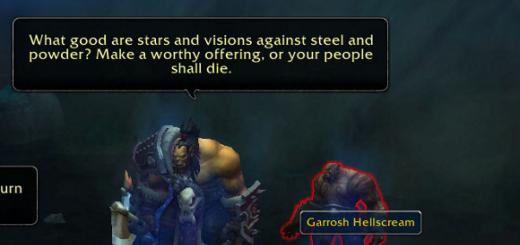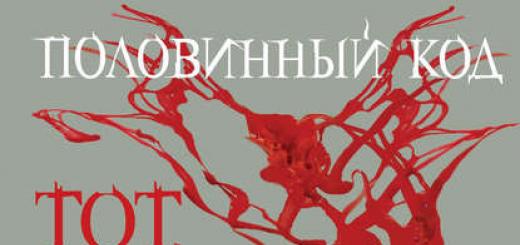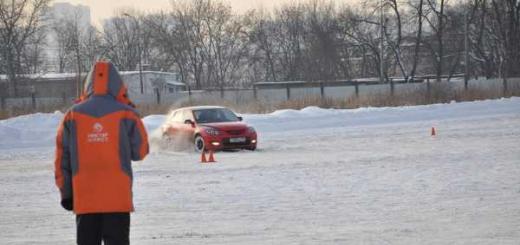abstract
on the topic:
"Life and work of Bulat Okudzhava"
Completed by: Alexander Bastrygin,
student 6 "A" class
Rossosh
2016
Bulat Shalvovich Okudzhava (1924 - 1997) - one of the most original Russian poets of the 20th century, the recognized founder of the author's song.
Until 1940 he lived on the Arbat. Both the date and place of birth of the poet acquired a symbolic character over time. May 9 was the day of the end of the most terrible and inhuman war, about which the front-line soldier Okudzhava managed to say a new word in his songs. Arbat, in the poet's lyrical system, became a symbol of peace, goodness, humanity, nobility, culture, historical memory- everything that opposes war, cruelty and violence. A significant part of Okudzhava's lyrics was written under the impressions of the war years. But these songs and poems are not so much about war as against it: “War, you see, is an unnatural thing, depriving a person of the given right to life by nature. I was wounded by it for life, and still often see in my dreams the dead comrades, the ashes of houses, the earth torn apart by funnels ... I hate war. Before last day, looking back, admiring the victory, proud of the participants in the Great Patriotic War, the poet did not stop hoping that we, the people, would learn to do without blood, solving our earthly affairs. In the last poems of Okudzhava there are lines:
The soldier comes with a rifle, he is not afraid of the enemy.
But here is what strangeness is going on in his soul:
He hates guns, and he is not happy with wars...
Of course, if it's not a bast shoe, but a soldier.
And yet: “The war is so ingrained in me, it’s hard for me to get rid of it. All of us, probably, would be glad to forget about the war forever, but, unfortunately, it does not subside, it is on the heels ... How long will we, the people, be able to win this war?
Bulat's life was not easy. In 1937, the poet's father, a major party worker, was arrested and then shot. The mother was sent to the camp. Bulat Okudzhava himself barely managed to avoid being sent to an orphanage as the son of an "enemy of the people." From the ninth grade of a Moscow school, he went to the front, where he was a mortar, machine gunner, and after being wounded, a heavy artillery radio operator. From 1945 to 1950, Okudzhava studied at the Faculty of Philology of Tbilisi University. Then his first song "Furious and stubborn, burn, fire, burn ..." was born.
In this small, but extremely dynamic and rich text, one can see the original grain of the genre, which will then be widely developed. Here the combination of external simplicity, apparent artlessness with the depth of thought and experience is striking. What is the song about? Yes, about everything in the world: about the inexhaustible mystery of life, about that fullness of being, which we comprehend only on the path of tragic trials. The most serious things are discussed here with artistic lightness, almost carelessness. The song creates an atmosphere of sincerity, trust, inner freedom. The song was born in a student environment, but its author was not yesterday's schoolboy, but a man wise in life and military experience, who knew not from books what "the most terrible court" is. It is no coincidence that today, so many years later, Okudzhava's first song is not at all outdated, its romantic and philosophical mood is still close to many. Both the poet himself and the knights of the author's song who followed him carried this "violent" and "stubborn" fire through the decades.
After graduating from the university, Okudzhava worked as a teacher of Russian language and literature in a rural school near Kaluga. In 1956, his first poetry collection, Lyrica, was published in Kaluga. Okudzhava moved to Moscow, where his mother returned after rehabilitation. Soon, in the circle of Moscow writers, many of the poet's songs became famous, which he first performed in a friendly circle, and since about 1959 - in public. In the 60s, the need for a genre that would later be called "author's song" turned out to be extremely great. The pattern of its appearance, the natural entry into the culture of that time, was accurately expressed by David Samoilov:
Former defenders of the state,
We missed Okudzhava.
Bulat Okudzhava is a recognized founder of the author's song. Success came to Okudzhava because he turned not to the masses, but to the individual, not to everyone, but to each individual. The subject of poetry in his world was ordinary, everyday life.
Poems began to write in childhood. For the first time, Okudzhava's poem was published in 1945 in the newspaper of the Transcaucasian Military District "Fighter of the Red Army" (later "Lenin's banner"), where his other poems were also published during 1946. In 1953-1955, Okudzhava's poems regularly appeared on the pages of Kaluga newspapers. In Kaluga, in 1956, the first collection of his poems, Lyrica, was also published. In 1959, Okudzhava's second poetry collection, Islands, was published in Moscow. In subsequent years, Okudzhava's poems were published in many periodicals and collections, books of his poems were published in Moscow and other cities.
Okudzhava wrote more than 800 poems. Many of his poems are born along with music, there are already about 200 songs.
For the first time he tries himself in the genre of song during the war. In 1946, as a student at Tbilisi University, he created the "Student Song" ("Furious and stubborn, burn, fire, burn ..."). Since 1956, one of the first begins to act as an author of poetry and music songs and their performer. Okudzhava's songs attracted attention. There were tape recordings of his speeches, which brought him wide popularity. Recordings of his songs were distributed throughout the country in thousands of copies. His songs were heard in films and performances, in concert programs, in television and radio programs. The first CD was released in Paris in 1968 despite opposition Soviet authorities. Disks came out noticeably later in the USSR.
Currently at the State literary museum in Moscow, a fund of Okudzhava's tape recordings was created, numbering over 280 items.
Professional composers write music to Okudzhava's poems. An example of good luck is V. Levashov's song to Okudzhava's verses "Take your overcoat, let's go home." But the most fruitful was Okudzhava's collaboration with Isaac Schwartz ("Drops of the Danish King", "Your Honor", "Song of the Cavalier Guard", "Road Song", songs for the TV movie "Straw Hat" and others).
Books (collections of poems and songs): "Lyric" (Kaluga, 1956), "Islands" (M., 1959), "Cheerful drummer" (M., 1964), "On the road to Tinatin" (Tbilisi, 1964), "Magnanimous March" (M., 1967), "Arbat, my Arbat" (M., 1976), "Poems" (M., 1984, 1985), "Dedicated to you" (M., 1988), "Selected" (M., 1989), " Songs (M., 1989), Songs and Poems (M., 1989), Drops of the Danish King (M., 1991), Mercy of Fate (M., 1993), Song about my life (M., 1995), "Tea drinking on the Arbat" (M., 1996), "Waiting room" (N.Novgorod, 1996).
Since the 1960s Okudzhava works a lot in the genre of prose. In 1961, in the almanac Tarusa Pages, his autobiographical story Be Healthy, Schoolboy was published (in a separate edition in 1987), dedicated to yesterday's schoolchildren who had to defend the country from fascism. The story was negatively assessed by supporters of official criticism, who accused Okudzhava of pacifism.
In subsequent years, Okudzhava constantly wrote autobiographical prose, which compiled the collections The Girl of My Dreams and The Visiting Musician (14 short stories and novellas), as well as the novel Abolished Theater (1993), which received the Booker International Prize in 1994 as best novel years in Russian.
In the late 1960s Okudzhava turns to historical prose. In 1970-80s. separate editions published the story "Poor Avrosimov" ("A Sip of Freedom") (1969) about the tragic pages in the history of the Decembrist movement, "The Adventures of Shipov, or Old Vaudeville" (1971) and written in historical material early XIX century novels "Journey of Amateurs" (Part 1. 1976; Part 2. 1978) and "Date with Bonaparte" (1983).
Books (prose): "The Front Comes to Us" (M., 1967), "A Sip of Freedom" (M., 1971), "Charming Adventures" (Tbilisi, 1971; M., 1993), "Shipov's Adventures, or Ancient Vaudeville" (M. , 1975, 1992), "Selected Prose" (M., 1979), "Journey of Amateurs" (M., 1979, 1980, 1986, 1990; Tallinn, 1987, 1988), "Date with Bonaparte" (M., 1985 , 1988), "Be healthy, schoolboy" (M., 1987), "Girl of my dreams" (M., 1988), "Selected works" in 2 vols. (M., 1989), "The Adventures of a Secret Baptist" (M., 1991), "Tales and Stories" (M., 1992), "Visiting Musician" (M., 1993), "Abolished Theater" (M., 1995).
Okudzhava's performances were held in Australia, Austria, Bulgaria, Great Britain, Hungary, Israel, Spain, Italy, Canada, Poland, USA, Finland, France, Germany, Sweden, Yugoslavia, Japan.
Okudzhava's works have been translated into many languages and published in many countries around the world.
Books of poetry and prose published abroad (in Russian): "Song of Fools" (London, 1964), "Be Healthy, Schoolboy" (Frankfurt am Main, 1964, 1966), "Merry Drummer" (London, 1966), "Prose and Poetry" (Frankfurt am Main , 1968, 1977, 1982, 1984), "Two novels" (Frankfurt am Main, 1970), "Poor Avrosimov" (Chicago, 1970; Paris, 1972), "Charming Adventures" (Tel Aviv, 1975), "Songs" in 2 volumes (ARDIS, vol. 1, 1980; vol. 2, 1986 (1988).
Based on Okudzhava's play "A Sip of Freedom" (1966), as well as his prose, poems and songs, dramatic performances were staged.
Productions : "A sip of freedom" (L., Youth Theater, 1967; Krasnoyarsk, Youth Theater named after Lenin Komsomol, 1967; Chita, Drama Theater, 1971; M., Moscow Art Theater, 1980; Tashkent, Russian Drama Theater named after M. Gorky, 1986) ; "Merci, or an old vaudeville" (L., musical comedy theater, 1974); "Be healthy, schoolboy" (L., Youth Theater, 1980); "Music of the Arbat Yard" (M., Chamber Music Theatre, 1988). Films: film and television.
From the mid 1960s. Okudzhava acts as a screenwriter. Even earlier, his songs begin to sound in films: in more than 50 films, more than 70 songs based on Okudzhava's poems are heard, of which more than 40 songs are based on his music. Sometimes Okudzhava is removed himself.
Screenplays:
"Zhenya, Zhenechka and Katyusha" (1967; co-authored with V. Motyl; Staging: Lenfilm, 1967);
"The Private Life of Alexander Sergeyevich, or Pushkin in Odessa" (1966; co-authored with O. Artsimovich; the film was not staged);
Songs in films (most famous works):
to own music:
"Sentimental March" ("Zastava Ilyich", 1963)
"We will not stand up for the price" ("Belorussky Station", 1971)
"Wishing Friends" ("Key without the right to transfer", 1977)
"Song of the Moscow militia" ("Great Patriotic", 1979)
"Lucky Lot" ("Legal Marriage", 1985) to music by I. Schwartz:
"Drops of the Danish King" ("Zhenya, Zhenechka and Katyusha", 1967)
"Your Honor" ("White Sun of the Desert", 1970)
"Song of the Cavalier Guard" ("Star of Captivating Happiness", 1975) songs for the film "Straw Hat", 1975
"Road song" ("We were not married in the church", 1982) to music by L. Schwartz
"Merry Drummer" ("My friend, Kolka", 1961) to the music of V. Geviksman
"Old Pier" ("Chain Reaction", 1963) to music by V. Levashov
"Take your overcoat, let's go home" ("From dawn to dawn", 1975; "Aty-bats, soldiers were walking ...", 1976).
Books:
"Zhenya, Zhenechka and "Katyusha"..." (M., 1968)
"Drops of the Danish King". Screenplays and songs from films (M.: Kinotsentr, 1991).
Works in the frame:
Feature (feature) films:
"Zastava Ilyich" ("I'm twenty years old"), Film Studio. M. Gorky, 1963
"Key without the right to transfer", Lenfilm, 1977
"Legal marriage", Mosfilm, 1985
"Keep me, my talisman", Film Studio im. A.P. Dovzhenko, 1986
"I remember wonderful moment"(Lenfilm)
"My Contemporaries", Lenfilm, 1984
"Two hours with bards" ("Bards"), Mosfilm, 1988
"And don't forget about me", Russian TV, 1992
His life has become a legend. No tape recording will convey all the richness of the intonations of his wonderful voice, although, of course, there is nothing pretentious in his voice. Poems and songs of Bulat Okudzhava reflect Big world existing both in time and space of human values, it would be more accurate to say - universal human values.
On June 12, 1997, tragic news came from France to Russia - Bulat Okudzhava died. A decade later, any short Internet encyclopedia will give every curious dry information: "Poet, prose writer, screenwriter. Author and performer of songs, founder of the author's song direction." But then it was immediately clear to several generations of people - one more great era became only "property".
Bulat Okudzhava in his songs felt sorry for everyone: both good and bad. He felt sorry for himself, tired travelers, girls, girls, married women and grandmothers, felt sorry for the “blue ball”, infantry, boys, himself again, women again, finally, his soul.
Okudzhava Bulat Shalvovich - Russian poet, composer, prose writer, writer. Widely known as one of the most outstanding performers of author's songs in the USSR in the 50-80s of the last century. More than two hundred different compositions were included in the repertoire, which was performed by Okudzhava Bulat. The biography of this man, who became a vivid symbol of the so-called era of the sixties, as well as one of the brightest writers and musicians of his generation, is offered to your attention.
pre-war time
The life of Bulat Okudzhava was dramatic and unusual. Few know that he was given the name Dorian at birth, named after the hero of the novel by Oscar Wilde. Okudzhava Bulat, whose biography is offered in this article, was born in Moscow on May 9, 1924. His parents were staunch communists. Shalva Okudzhava, father, was a Georgian, came to Moscow to study at the Communist Academy. Ashkhen Nalbadnyan, mother, an Armenian, was closely related to Vahan Teryan, a famous poet from Armenia.
In 1926, after the parents graduated, the family returned to Tbilisi. Bulat's father made a party career: he worked in the city party committee in this city, was a division commissar. But after the conflict with Beria, Shalva Okudzhava asked for a job in Russia and was sent to the Urals. Here he first worked as a party organizer in Nizhny Tagil during the construction of a plant, after which he was appointed first secretary of the local city party committee.
Bulat Okudzhava began his studies in Russian in Tbilisi, and then in Nizhny Tagil, where he moved with his mother after his father. Shalva interrupted his career Like many other members of the party who were considered "unreliable", his further fate was as follows: first, exile to the camp, after which - execution. It was a difficult time that Bulat Okudzhava went through. Biography, family, the origin of the poet were reflected later in his work. The boy's mother returned with her son to Moscow, and they began to live on the Arbat. She was arrested in 1938 and sent to a special camp for the wives of "traitors to the Motherland". She returned from there only 17 years later, in 1955.
Okudzhava Bulat, whose biography began dramatically, during his life tried not to remember this time. Only in 1993, in his declining years, he spoke about the tragic family events in his novel "Abolished Theater".
Bulat Okudzhava returned to Tbilisi in 1940, where his relatives lived. After leaving school, he entered the factory and worked for some time as an apprentice turner.
After the onset of the Great Patriotic War, in 1942, a 17-year-old boy volunteered for the front. He served as an artillery radio operator, mortar, and participated in many battles. It was at that time that he created one of his first songs called "We couldn't sleep in the cars". In 1943, after a serious wound received near Mozdok, Bulat Shalvovich was sent behind the front line, to the rear.
The beginning of literary activity

Demobilized at the end of the war, Bulat Okudzhava, short biography which is now being covered, passed the exams externally for high school. Then, in 1950, he graduated from the Faculty of Philology of Tbilisi University and went to the Kaluga region, to the village of Shamordino, where he taught literature and Russian at school. Six years later, the local publishing house of Kaluga published his first collection of poems called "Lyrics". And in 1954, the newspaper "Young Leninist" published poems written by Okudzhava Bulat Shalvovich. His biography is further connected with Moscow.
Return to the capital
After the famous XX Congress of the Communist Party, in 1956, when it was condemned by its members, Okudzhava's mother was rehabilitated. Together with her son, she moved to Moscow with the permission of the government. In the same year, Bulat Shalvovich became a member of the CPSU.
His active work in the literary field began in 1957. He worked at that time in "Komsomolskaya Pravda", "Literaturnaya Gazeta" and "Young Guard" as an editor. Bulat Okudzhava's story "Be Healthy, Schoolboy" in 1961 was included in the literary almanac "Tarus Pages", compiled by a well-known writer (it was on this story that director V. Motyl made the film "Zhenya, Zhenechka and Katyusha" in 1965).
Increased popularity

During this period, Okudzhava's fame began to increase. He began to be recognized both as a performer and as the author of his songs. In 1956-1966, he composed many compositions that are still loved and popular to this day: "Blue Balloon", "Midnight Trolley Bus", "About Lyonka Queen", "Song of the Ant", "Sentimental March", "Not Tramps, Not Drunkards " and many others).
Bulat Shalvovich in Moscow worked, as we have already mentioned, as an editor, after which he worked as the head of the poetry department in Literaturnaya Gazeta. He was a member of the "Magistral" association, was one of its most active members. In 1962, Bulat Shalvovich was also admitted to the Writers' Union.

His first writings, it must be said, were very coolly received by official criticism. For example, in the story "Be healthy, schoolboy" they saw pacifist sentiments, expressed in the young man's perception of the war, the events of which were reflected in the biography of Bulat Okudzhava. Summary of this work is as follows: it tells about a 17-year-old boy who got to the front, about how boys, who until recently were schoolchildren, passed through themselves and understood the war, how it changed people and shattered illusions. You can also get acquainted with this story from the aforementioned film "Zhenya, Zhenechka, Katyusha". Bulat Okudzhava, whose biography and work are very interesting, expressed in this work his thoughts and feelings experienced by himself. In the early 1960s, almost all songs were sharply condemned, since the Union of Writers suggested that they did not depict the true aspirations and mood of the Soviet heroic youth.
Okudzhava in the late 1960s turned to the study and understanding historical events. At this time, he wrote the novel "Poor Avrosimov", dedicated to Pavel Pestel, as well as the play "A Sip of Freedom" about Mikhail Bestuzhev. During the same period, he became interested in the biography of Tolstoy, in particular, why this writer was constantly pursued by the gendarmes. "The Adventures of Shipov", an adventurous novel, was the result of these researches. These works received a very ambiguous assessment from official criticism, but among the intelligentsia they were perceived positively and became very popular.

Songs written for movies
In 1962, Bulat Shalvovich first participated in the creation of a movie: he performed the song "Midnight Trolleybus" of his own composition in a film called "Chain Reaction". National fame came to Okudzhava in 1970, after the film "Belarusian Station" was released, in which the composition "And now we need one victory" sounded - one of the best in his work. Okudzhava later said that when the director offered him to write a song for this film, at first he refused.
It was necessary not only to create a composition, but precisely with the stylization of the text under the poetic creativity of the period of the Great Patriotic War, since, according to the plot, it was supposed to be performed by ordinary soldier, a front-line poet sitting in a trench, composing simple lines about his friends, and not a professional. Such a task seemed to Bulat Shalvovich very difficult, because he always wrote about the war from the position of a person who already lives in peacetime, but at the front they thought differently, spoke, sang. However, memory prompted the musical intonation and right words. After such an experience, Bulat Shalvovich became the author of many popular songs created for more than eighty films.

freethinking
Okudzhava left his job in 1961, deciding to devote himself exclusively to creativity. At that time, he liked to flaunt this independence. His poems were published abroad, he signed a letter in defense of Sinyavsky and Daniel. Oddly enough, punishment for such "free-thinking" did not follow.
Song creativity
The biography of this author will be incomplete if you do not point out such an important branch of his work as the author's song. The first concert took place in Kharkov in 1961. The first records appeared in Poland and Paris in 1968, and since the mid-1970s, recordings of songs began to be released in our country.

Last years
Our story about such a great man as Bulat Shalvovich Okudzhava has come to an end. A brief biography in the aspect of the last years of his life is inextricably linked with perestroika. During this period, he took an active part in the life of the country. In 1990, Okudzhava Bulat, whose biography was presented in this article, left the CPSU. The last concert of the performer took place in Paris in June 1995, and two years later Okudzhava died in Clamart, a Parisian suburb.
In the 1920s, Bulat Shalvovich Okudzhava became one of the brightest representatives of the art song movement, its founders and unspoken leaders (although he himself never aspired to this). In contrast to the officialdom of mass culture, the human factor flourished in his songs, something lyrical, personalized, even intimate, close to each individual person appeared.
Feature of Okudzhava's creativity
Okudzhava's songs marked an entire era, but even today they have not lost either their sharpness or their relevance. The reason is simple Okudzhava was the main sentimentalist (which the poet David Samoilov repeatedly repeated) of the bard environment.
Few songs can compete with his for penetration, lyricism, and special intimacy. The peculiarity of the perception of Okudzhava's work is that each person feels him as his "personal property", everyone is sure that Okudzhava sings for him and about him. The performance of Okudzhava's lyrical poems with a guitar is not even a song, but rather a cozy story to the interlocutor about something very important.
As a poet, Okudzhava took shape only by 1956 (in fact, from this year, many researchers count the classical period of his creative activity). Then his first collection "Lyric" was released, big influence which was subjected to tests passed by Okudzhava in the war. This was followed by his search for creative individual expression, manifested in the second book "Islands" (1959), and then the collections "The Great Drummer" and "On the Road to Tinatin" (1964).
Themes of Okudzhava's poetry
A huge place in the lyrics of Okudzhava is occupied by Moscow, especially the Arbat, where he grew up. The combination of Arbat and military themes in many of his poems (which later became songs) gave rise to exactly what is commonly called an urban bard romance.
Okudzhava recalls his childhood friends who did not return from the fronts of the Great Patriotic War, recalls his own early thoughts ( "Ah, my childhood dreams, what a mistake! .."). He admits that in many ways it was the Arbat that shaped his worldview.
However, Okudzhava's creative world is not limited to the Arbat, just as it is not limited to reality: his lyrics also contain fairy-tale motifs. In some songs, even insects are the main characters. ("...and the ant created a goddess for himself...", "...well, what can you please, my grasshopper?"), which he endows with human features.
He does not forget about famous literary heroes or famous people ("Mozart plays an old violin ...", "... but Ophelia will remember us all"), which seem simple and close to the reader. Okudzhava really manages to find the key to each of his listeners and readers. This can explain the fact that Okudzhava's songs have become an integral part of many famous Soviet films.
Soviet literature
Bulat Shalvovich Okudzhava
Biography
Okudzhava, BULAT SHALVOVICH (1924−1997), Russian poet, prose writer. Born May 9, 1924 in Moscow in a family of party workers, spent his childhood on the Arbat. He lived with his parents in Nizhny Tagil until 1937, when his father was arrested and shot, and his mother was sent to a camp, then into exile. In 1942, ninth-grader Okudzhava volunteered for the front, where he was a mortar, machine gunner, and after being wounded, a radio operator. In 1945 he worked in Tbilisi as a turner, graduated from the tenth grade of an evening school. In 1946-1950 he studied at the Faculty of Philology of Tbilisi University, after which he worked as a teacher of Russian language and literature in a rural school near Kaluga, then in Kaluga, where he contributed to regional newspapers. Okudzhava's first book was published in Kaluga; the poems included in it and the poem about Tsiolkovsky were not included by the author in later collections. In 1956 he moved to Moscow, worked as an editor at the Young Guard publishing house, and headed the poetry department at the Literaturnaya Gazeta. Joining the Writers' Union in 1962, he fully focused on creative work.
His first song - Furious and Stubborn ... - Okudzhava composed as a student, in 1946, and in the second half of the 1950s he created songs (Midnight trolleybus, Vanka Morozov, Korol, Goodbye, boys, Song about the Black Cat, etc. ), which immediately gained wide popularity. These songs were first performed by the author in friendly companies, then publicly, tape recordings dispersed throughout the country. Okudzhava is one of the creators and recognized patriarch of the genre, which later received the name "author's song". Okudzhava himself never saw a fundamental difference between his poems-songs and non-song poems, he had an emphatically literary (and even "literary-centric") self-awareness, he was guided in his work - both poetic and prosaic - by the spiritual tradition of the 19th century.
The first prose work of Okudzhava - the story Be healthy, schoolboy! - was published in 1961 in the anthology Tarusa Pages. Like many of Okudzhava's songs, it was condemned in the press for "pacifism", the absence of "heroic" pathos. Okudzhava's independent civil behavior, his sympathetic attitude towards colleagues persecuted by the authorities (in particular, the signing of letters in defense of A. D. Sinyavsky and Yu. M. Daniel, A. I. Solzhenitsyn) created him a reputation as an "unreliable" writer. Not being an active political fighter by nature, Okudzhava convincingly expressed in many poems and songs the feelings and thoughts of the radical intelligentsia, and also, continuing the tradition of Yu. since the late 1960s.
During the years of “perestroika”, Okudzhava’s popularity was accompanied by official recognition, he actively participated in public life, worked in the Pardon Commission under the President of the Russian Federation. He was awarded the USSR State Prize (1991), the Booker Prize (1994) for the autobiographical novel Abolished Theater. In the 1990s, Okudzhava closely followed the events taking place in Russia, worried about the fate of democracy, and condemned the war in Chechnya.
Okudzhava's poetry goes back to different and even heterogeneous folklore and literary sources. This is a creatively transformed tradition of urban romance, and Nekrasov's line of prose prose, and Russian symbolism with its extreme polysemy of key images, and V. Mayakovsky's poetics with its speech shifts and accent verse (which Okudzhava transforms into melodious rhythms). Okudzhava is characterized by the poetics of a harmonized shift, when the courage and paradoxicalness of the technique becomes imperceptible in the general flow of sincerely-confiding intonation.
The world of Okudzhava is both intimate and cosmic. This effect is achieved by a consistent expansion of the meaning that underlies the lyrical composition. The midnight trolleybus becomes a ship, and the passengers become sailors. The blue ball flies away and returns, having managed to visit the globe. The Arbat appears as a whole “fatherland” and even a “religion”. Real, earthly Vera, Lyuba and Nadya-Nadya turn into a symbolic triad of Faith - Hope - Love. Okudzhava's individual poetic phraseology ("on duty in April", "hopeful little orchestra", "let's join hands, friends", etc.) became part of the national language.
Okudzhava, a prose writer, owns the novels A Sip of Freedom (Poor Avrosimov; 1965−1968), Mercy, or Shipov's Adventures. Vintage vaudeville (1969-1970), Voyage of dilettantes (1971-1977), Rendezvous with Bonaparte (1983). Resorting to linguistic and figurative-objective stylization, the author paradoxically clashes the fates of "big" and "small" people, becoming more and more imbued with a skeptical view of the possibility of a radically volitional intervention of an individual in history. In the unfinished family chronicle Abolished Theater (1990−1993), this idea develops as a soberly critical assessment of Bolshevik romanticism, debunking the illusory ideals of "commissars in dusty helmets." Novels and short stories by Okudzhava Separate failures among continuous successes (1978), The Adventures of a Secret Baptist (1984), The Art of Cutting and Living (1985), The Girl of My Dreams (1985), Near Rivoli, or the Whims of Fortune (1991) in the highest degree autobiographical, full of fruitful critical reflection, witty self-irony. Such are the Autobiographical Anecdotes published in Novy Mir (1997, No. 1) and becoming Okudzhava's last lifetime prose publication. Okudzhava wrote film scripts Zhenya, Zhenechka and Katyusha (1967) in collaboration with V. Motyl and Fidelity (1965) together with Todorovsky, he wrote theatrical staging of his prose works, songs for theater and cinema. Okudzhava died in Paris on May 12, 1997.
Bulat Shalvovich Okudzhava, Russian poet, was born on May 9, 1924 in Moscow in the family of the famous communist leader Shalva Okudzhava. In 1937, Okudzhava's father was shot on erroneous charges, in 1938 Bulat's mother was arrested and sent to the Karaganda camp.
In 1942, the young poet went to the front as a volunteer, taking part in the battles on the North Caucasian front as a mortar man, later as a radio operator. After the war, the poet worked as a turner at the factory, and in 1946 Okudzhava entered the philological faculty of the Tbilisi state university, after graduation, he works as a teacher in a rural school in the city of Shamordino, Kaluga region.
In 1956, Okudzhava worked with the newspaper "Young Leninist", made his debut in the literary field with the poetry collection "Lyric", performed with his songs to the audience. Later he worked as an editor at the Young Guard publishing house, then he headed the poetry department at the Literaturnaya Gazeta. In the same year, after the political rehabilitation of his relatives, he joined the Communist Party. At the same time, Okudzhava has an extremely negative attitude towards Stalin, and later criticizes the CPSU.
In 1961, he published the autobiographical novel Be Healthy, Schoolboy, and a year later became a member of the Writers' Union. Okudzhava becomes one of the most famous representatives of the Russian bard song genre, which becomes popular after the advent of tape recorders. Okudzhava also writes songs for films; in collaboration with Isaac Schwartz, he creates more than 30 songs. During the period of "perestroika" the poet contributes to political development country, takes a democratic position, and in 1990 leaves the ranks of the Communist Party.
Okudzhava's poetry harmoniously combines the traditions of urban romance, clear images of Russian symbolism, passing through the poetic work the line of Nekrasov's prose of the verse. The world created by Okudzhava's poetry is intimate and cosmic, this effect is achieved by expanding the meaning of his images. Okudzhava is known not only as a brilliant poet, but also as a prose writer; his works describe the tragedy of the Decembrist coup.
Bulat Okudzhava died on June 12, 1997 in Paris. Before his death, he was baptized and took the name John.
His father, Shalva Okudzhava, was Georgian by nationality, and his mother, Ashkhen Nalbandyan, was Armenian.
In 1934, he moved with his parents to Nizhny Tagil, where his father was appointed first secretary of the city party committee, and his mother was appointed secretary of the district committee.
In 1937, Okudzhava's parents were arrested. On August 4, 1937, Shalva Okudzhava was shot on false charges, Ashkhen Nalbandyan was exiled to the Karaganda camp, from where she returned only in 1955.
After the arrest of his parents, Bulat lived with his grandmother in Moscow. In 1940 he moved to live with relatives in Tbilisi.
Since 1941, since the beginning of the Great Patriotic War, he worked as a turner at a defense plant.
In 1942, after finishing the ninth grade, he volunteered for the front. He served on the North Caucasian front as a mortar operator, then as a radio operator. He was wounded near Mozdok.
“In the forty-second year, after the ninth grade, at the age of seventeen, I voluntarily went to the front. He fought, was a mortar, private, soldier. Basically - the North Caucasian front. Wounded near Mozdok from a German plane. And after the cure - the heavy artillery of the reserve of the High Command ...
That's all I was able to see.
I didn't make it to Berlin.
I was a very funny soldier. And, probably, there was a little sense from me. But I tried my best to make everyone happy. I shot when I needed to shoot. Although to be honest with you, I didn’t shoot with great love, because killing people is not a very pleasant thing. Then - I was very afraid of the front.
The first day I got to the front line. Both I and several of my comrades, just like me, seventeen years old, looked very cheerful and happy. And on the chest we hung machine guns. And we went forward to the location of our battery. And everyone already imagined in their imagination how we would now fight and fight beautifully.
And at the very moment when our fantasies reached their culmination, suddenly a mine exploded, and we all fell to the ground, because we were supposed to fall. But we fell as expected, but a mine fell from us at a distance of half a kilometer.
Then everyone who was nearby walked past us, and we were lying. Everyone went about their business, and we were lying. Then we heard laughter at ourselves. They raised their heads. We knew it was time to get up. They got up and left too.
This was our first baptism of fire. That was the first time I knew that I was a coward. First time. By the way, I must tell you that before that I considered myself a very brave person, and everyone who was with me considered themselves the bravest.
And then there was the war. I learned and saw a lot ... And I also learned that everyone who was with me was also afraid. Some showed the view, others did not. Everyone was afraid. This was a little comforting.
The impression from the front was very strong, because I was a boy. And then, later, when I began to write poetry, my first poems were on a military theme. There were many poems. They made songs. From some. They were mostly sad songs. Well, because, I'll tell you, there's nothing fun about war."
Being a regimental leader, in 1943 at the front he composed his first song “We couldn’t sleep in cold cars ...”, the text of which has not been preserved.
Okudzhava: "There is nothing fun in war."
In 1945, Okudzhava was demobilized and returned to Tbilisi, where he passed the secondary school exams as an external student.
In 1950 he graduated from the Faculty of Philology of Tbilisi State University, worked as a teacher - first in a rural school in the village of Shamordino, Kaluga Region and in the district center of Vysokinichi, then in Kaluga.
He worked as a correspondent and literary employee of the Kaluga regional newspapers Znamya and Molodoy Leninets.
Okudzhava's first poem was published in 1945 in the newspaper of the Transcaucasian Military District "Fighter of the Red Army". Then the poet's poems were regularly published in other newspapers.
In 1946, Okudzhava wrote the first surviving song, Furious and Stubborn.
In 1956, after the release of the first collection of poems "Lyrika" in Kaluga, Bulat Okudzhava returned to Moscow, worked as deputy editor for the department of literature in the newspaper "Komsomolskaya Pravda", editor in the publishing house "Young Guard", then head of the department of poetry in the "Literary Gazette". ". He took part in the work of the Magistral literary association.
In 1959, the second poetic collection of the poet "Islands" was published in Moscow.
In 1962, having become a member of the Union of Writers of the USSR, Okudzhava left the service and devoted himself entirely to creative activity.
Author of collections of lyrics "Merry Drummer" (1964), "On the road to Tinatin" (1964), "Magnanimous March" (1967), "Arbat, my Arbat" (1976) and others.
In 1996, Okudzhava's last collection of poetry, Tea Party on the Arbat, was published.
Since the 1960s, Okudzhava has worked extensively in the prose genre. In 1961, in the almanac Tarusa Pages, his autobiographical story “Be Healthy, Schoolboy” was published (in a separate edition in 1987), dedicated to yesterday's schoolchildren who had to defend the country from fascism. The story received a negative assessment of official criticism, which accused Okudzhava of pacifism.
In 1965, Vladimir Motyl managed to film this story, giving the film the name - "Zhenya, Zhenechka and Katyusha". In subsequent years, Okudzhava wrote autobiographical prose, which compiled the collections of stories The Girl of My Dreams and The Visiting Musician, as well as the novel Abolished Theater (1993).
In the late 1960s, Okudzhava turned to historical prose. The novels Poor Avrosimov (1969) about the tragic pages in the history of the Decembrist movement, The Adventures of Shipov, or Ancient Vaudeville (1971) and the novels The Voyage of Amateurs written on the basis of historical material of the early 19th century (1976 - the first part; 1978) were published as separate editions. - the second part) and "Date with Bonaparte" (1983).
Poetic and prose works of Okudzhava have been translated into many languages and published in many countries of the world.
From the second half of the 1950s, Bulat Okudzhava began to act as an author of poetry and music for songs and their performer, becoming one of the universally recognized founders of the author's song.
Okudzhava is the author of more than 200 songs
The earliest known songs of Okudzhava date back to 1957-1967 (“On Tverskoy Boulevard”, “Song about Lyonka Korolyov”, “Song about the blue ball”, “Sentimental March”, “Song about the midnight trolleybus”, “Not tramps, not drunkards”, “Moscow ant”, “Song about the Komsomol goddess”, etc.). Tape recordings of his speeches instantly spread throughout the country. Okudzhava's songs were heard on radio, television, in films and performances.
Okudzhava's concerts were held in Bulgaria, Austria, Great Britain, Hungary, Australia, Israel, Spain, Italy, Canada, France, Germany, Poland, USA, Finland, Sweden, Yugoslavia and Japan.
In 1968, the first disc with Okudzhava's songs was released in Paris. Since the mid-1970s, his CDs have also been released in the USSR. In addition to songs based on his own poems, Okudzhava wrote a number of songs based on poems by the Polish poetess Agnieszka Osiecka, which he himself translated into Russian.
Okudzhava's concerts were held in Europe, USA, Canada and Japan
Andrei Smirnov's film "Belarusian Station" (1970) brought national fame to the performer, in which a song was performed to the words of the poet "Birds do not sing here ...".
Okudzhava is also the author of other popular songs for such films as "Straw Hat" (1975), "Zhenya, Zhenechka and Katyusha" (1967), "White Sun of the Desert" (1970), "Star of Captivating Happiness" (1975). In total, Okudzhava's songs and his poems are featured in more than 80 films.
In 1994, Okudzhava wrote his last song - "Departure".
In the second half of the 1960s, Bulat Okudzhava acted as a co-author of the script for the films Loyalty (1965) and Zhenya, Zhenechka and Katyusha (1967).
In 1966, he wrote the play A Sip of Freedom, which a year later was staged in several theaters at once.
IN last years Bulat Okudzhava was a member of the founding board of the Moskovskiye Novosti and Obschaya Gazeta newspapers, a member of the editorial board of the Evening Club newspaper, a member of the Council of the Memorial society, vice president of the Russian PEN Center, a member of the pardon commission under the President of the Russian Federation (since 1992 ), a member of the Commission on State Prizes of the Russian Federation (since 1994).
On June 23, 1995, Okudzhava's last concert took place at the UNESCO headquarters in Paris.
On June 12, 1997, Bulat Okudzhava died in a clinic in Paris. According to the will, he was buried at the Vagankovsky cemetery in Moscow.
Okudzhava was married twice.
From his first marriage with Galina Smolyaninova, the poet had a son, Igor Okudzhava (1954-1997).
In 1961, he met his second wife, the niece of the famous physicist Lev Artsimovich, Olga Artsimovich. The son from his second marriage Anton Okudzhava (born in 1965) is a composer, father's accompanist at creative evenings of recent years.
In 1997, in memory of the poet, by decree of the President of the Russian Federation, the regulation on the Bulat Okudzhava Prize was approved, awarded for the creation of works in the genre of author's song and poetry that contribute to Russian culture.
In October 1999, the State Memorial Museum of Bulat Okudzhava was opened in Peredelkino.
In May 2002, the first and most famous monument to Bulat Okudzhava was opened in Moscow near house 43 on the Arbat.
The Bulat Okudzhava Foundation annually hosts the "Visiting Musician" evening at the Tchaikovsky Concert Hall in Moscow. Festivals named after Bulat Okudzhava are held in Kolontaevo (Moscow region), on Lake Baikal, in Poland and in Israel.










